Interview: Twink
Interview: Twink
Psychedelic Scene: All right. So I’m Jason Valley from Psychedelic Scene.
Twink: Very nice to meet you, Jason.
Nice to meet you, too. You recently reissued your 1970 classic debut album, Think Pink. And I just wanted to thank you for being here. (Long pause) Did I say something wrong?
No, it’s breaking up, and the video is breaking up as well, but we’ll keep working on it. I think you said I released the 1970 album.
Right. Which is considered a psychedelic classic. Did you reissue it in pink vinyl? Is that the correct? I think I remember something about that.
Yeah. I licensed it. I didn’t actually reissue it myself, but there were various colors and various record companies that did kind of small run limited editions in different formats. But Pink was generally the accepted color.
It wasn’t until ‘67 that I started to take LSD, and we all had trips together.
Makes sense. So do you prefer to be called Twink or Mohammed now?
Well, it’s whatever you’re comfortable with. I mean, I’m known by all three names John, Mohammed, and Twink. I tried to get rid of that, but it’s kind of stuck. So here I am with John, Mohammed and Twink. But whatever you want to call me, you can call me whatever you like.
Okay, well, since you’re still releasing music under the name Twink, I’ll go with that.
Okay. Yeah, that’s fine.
I did want to ask you about your name. I’m a little reluctant to, but Twink, you adopted the name Twink long before it became associated with young gay men.
Yeah, I did. And it’s well documented where the name came from. Have you researched that?
Yes, I saw that. It was like people were throwing Twink hair products at you or something.
That’s right. Fans were sending stuff. We had a fan base and a fan club based in Scotland, and the fans used to send us all different things. They used to send me Twink Home Perm, because I had very long, curly hair. It was just like a little joke. And the guys in the van started to introduce me as Twink as one does. And it kind of stuck.
So did its eventual association with gay men cause you to… Is that the thing that made you want to shed the name?
No, it had nothing to do with that. I guess it was like about 30 years ago that I tried to bury the name, but it just kept bouncing back. And I think it’s only recent years, like, sort of 20 years or so that it’s been associated with the gay fraternity, if that’s the right expression.
Yes. So anyway, as I mentioned, you’re a critical figure of the 60s British psychedelic scene. You were in Tomorrow, The Pretty Things, and then you released your own class solo album Think Pink. Were you particularly drawn to psychedelic music when you joined the band Tomorrow?
Well, they were called the In-Crowd when I joined the band. About the same time that I joined the In-Crowd, I started listening to West Coast American psychedelic music, and I became, yeah, I was sold on it. I thought it was like, absolutely fantastic. I thought that the bands were terrific bands like the Jefferson Airplane and Country Joe and The Fish, the Birds, of course, The Doors. So I really got drawn into it. And as time went on, I kind of drew the rest of the band into the psychedelic thinking mode.
And we decided to change our name from the In-Crowd to Tomorrow. And we started playing all the underground clubs. And our music policy changed as well, because when I joined The In-Crowd, they were great band, by the way, when I joined them. But they were very kind of Northern soul type stuff, which in itself was pretty cool. But my thinking was psychedelia.
Were you taking LSD back then?
Actually, I didn’t take LSD until early ‘67, but because I joined the band in ‘66, but it wasn’t until ‘67 that I started to take LSD, and we all had trips together.
So the band Tomorrow just released one album, which I consider a classic psychedelic album of the ‘60s. And then you split up shortly thereafter. What led to the split up?
Well, the reason the band split up was because all the money, all the bets were on Keith West, who was our lead vocalist, and he had the Teenage Opera, which actually didn’t exist. So all the money was going on a false start, If you like. Tomorrow got put on the back burner. You know what I mean? We got left behind and it just broke the band up.
Was it because Keith West got big-headed or was it just because the record company…?
I mean, he was put in a very difficult position because he had all the business people saying to him, you got to leave the band. You’re going to make a lot more money going solo with the Teenage Opera because it was a huge hit all over Europe. And I think it got into charts in America as well. So I understand one day he was leaving the band, and then the next day, he didn’t want to leave the band. It was backwards and forward like that for quite a while until we had a meeting.
We had a band meeting. I think it was an early ‘68 where Keith was suggesting to the group, and I think he had Steve on his side at that time, and he said, “Look, I want to produce tomorrow. I want to write all your songs, but I’m going solo”. So we said, “Well, bye bye. We’re not into that idea”.
So you’re talking about Steve?
Sorry, Steve? No, I was talking about Keith. We were all there at a meeting, but Keith and Steve were very close, if you like. There eventually became two camps within the band. It was myself and Junior who was a bass player who passed away a couple of years ago. And then there was Steve and Keith on the other side of the band. It was Keith who suggested that he became the band’s producer and songwriter, but he was going to go solo. So we didn’t really appreciate that idea.
So we said, “no thank you”, myself and Junior, that was how the band broke up at that point.
Okay. And then you must have immediately joined The Pretty Things.
I was going to say that I was working very closely with John Wood at the time, the bass player. We had a project called The Aquarian Age, which actually showed a lot of promise because we were writing together. We wrote some great songs. We had Mark Wirtz producing us. And we had a lot of plans. We had a plan for a band together. We also had a stage play that we were writing together. And we were actually rehearsing a stage play about two wizards. And then, funny enough, one day we were going up to our booking agents just to.
Okay. We got cut off for a second. I don’t know what happened, but anyway, we went out to our booking agents, which we did on a regular basis just to keep them informed of what we were doing and our progress. And Dick Taylor was there from The Pretty Things looking very flustered. And he said, “Twink Skip has left and we have some gigs in Rome this weekend”.
Yeah. The Aquarium Age got put on the back burner again. It was sad that that happened, actually, because we were showing promise, but anyway, it was great working with the Pretty Things, too. And it took up a lot of my time. And, of course, Junior- John Wood. We didn’t lose patience with each other, but I can understand him moving on. He joined the Jeff Beck Group for a short period of time, and then he left the music business completely after that.
Yeah. I have a tomorrow CD that has the two songs of the Aquarian Age– that one with the wizards talking, and then the 10,000 Words in a Cardboard Box, which showed up on your solo album.
Yeah. We re-did that for Think Pink with Paul Rudolph, the great Paul Rudolph, on lead guitar. And the two versions are so different, but they’re both so great. I mean, I love the Mark Wirtz production on the original version. I think we did a really pretty good cover version with the one on Thing Pink. It’s completely different from the original, right?
Originally, The Pink Fairies was just like a little drinking club.
Yeah. So how long were you in The Pretty Things then?
I was with The Pretty Things for about 18 months.
Okay. And you did appear on their classic SF Sorrow album, I believe?
Yeah.
Now, were you involved in the creative process or were you kind of left out of that because you were the new guy?
Well, no. Most of the songs, I think probably about 50% of the songs had been written. Two songs had already been recorded. So the rest of the album I’m playing on, and I’m part of the creative process, if you like, of knocking the songs into shape.
All right. The Pretty Things recorded under the name Electric Banana. And I think you participated on that, too. What was the reason for that?
The Pretty Things were… I guess it was a conflict of interest in the sense that they had a publishing agreement with Lupus Music so they could make the Electric Banana music. Originally it was like TV and film library music, if you like. And so that’s why they had the name Electra Banana. It was to cover up the deal that they had with both parties, if you like. I don’t know. I wasn’t involved in the original–the early Electric Banana stuff. I was only performing on the What’s Good for the Goose Film recordings, which had about five or six tracks that we did for that.
Okay.
Yeah. That was all I was involved in.
So in 1970, you released your solo album, Think Pink, which was recently reissued for its 50th anniversary. I think the album is a great achievement. It’s such a classic example of psychedelic music. If somebody asked me what psychedelic music is, I would put on Think Pink, and that would give them a good idea. How did you compose the album? I can understand how you would write drum parts. Do you play other instruments as well?
Yeah, I play guitar. And in fact, my first instrument was guitar, and I kind of, like, moved into percussion completely by accident. And suddenly I became known as a drummer. And I got a lot of work as a drummer, even in my semi-professional days. Eventually, when I joined the original Fairies and we moved to London, I was the drummer of that band, but I continued to play guitar, and I continued to write, even though I was playing drums. So it wasn’t too difficult to compose and organize the recording of Think Pink.
It is a great shame because, like I said, Syd really was playing well, looking good, and he was keen to play.
I think that the Pink Fairies developed out of the sessions for Think Pink.
Yeah, they did. Originally, The Pink Fairies was just like a little drinking club. We all used to hang out together. The Deviants, Pretty Things, and Steve Took from Tyrannosaurus Rex. We used to hang out. And when we started recording Think Pink, I remember Mick Farren saying one day that the sounds we’re making with Think Pink could be a very commercial sound. So we had this idea of a band, and we said, “Okay, so this is an imaginary band that we have, and we call it The Pink Fairies”.
Well, I think it was actually someone else that suggested Pink Fairies, which Mick extended into The Pink Fairies Motorcycle Club and Old-Style Rock and Roll Band, which actually wasn’t a band. But everyone’s wheels started turning and everyone wanted to actually have a band called The Pink Fairies, which is what happened eventually.
Yeah, but the Pink Fairies were a major change in direction in that it was more punk really, before punk was a thing.
Well, have you heard NeverNeverLand?
I haven’t. I have Spotify and it’s blacked out on that. Only, like, four bonus tracks are available to listen to.
Oh, okay. Yeah. Because that’s kind of like a mixture of punk like “Do It” and “Teenage Rebel”, but the rest of it is very psychedelic.
Oh, is it? Yeah, I do have another one, the Pigs of Oblivion, I think it’s called.
Oh, yeah, that’s right. That’s the trio line of Larry Wallace, Duncan Sanders and Russell Hunter.
Okay. Were you not on that?
No.
Syd Barrett with Twink on the left--Stars performance-1972--Photographer Unknown--Courtesy of the Twink Archives
Okay. All right. Did you feel in the early 70s that psychedelic rock was becoming passe?
Not really. I don’t think so. Psychedelic music still had its vibe.
Okay. Tell me about the Stars project that you did with Syd Barrett.
That was ‘72 when I had the short-lived band with Syd.
So how did you meet Syd barrett?
Well, I’d known Syd since ‘67. I’d been on a bill with him many times with Tomorrow and Pink Floyd. In ‘72, I was living in Cambridge. I left the Pink Fairies, and was living in Cambridge, and I was playing with a band called The Last Minute Put-Together Boogie Band. And one evening when we were setting up our equipment at King’s College in Cambridge, and we were actually backing a musician from America, a blues guitarist called Eddie “Guitar” Burns. The side door opened and Syd walked in carrying his guitar.
And he was with Jenny, who was married to our bass player. He jammed with us that night. That’s why I brought his guitar. So we had a little jam. And then two nights later, we were supporting, that’s the Last Minute Put-Together Boogie Band, we’re supporting Hawkwind and the Pink Fairies at Cambridge Corn Exchange. And the same thing happened. Syd turned up with this guitar and we invited him up onstage to jam with us, which he did. And a few days later, myself, and Jack Monk, and Syd form Stars. Syd had actually been out looking for people to play with, and he figured that Jack and myself were the best musicians in Cambridge at the time, and wanted to play with us.
So that’s how we formed Stars.
Okay. Did Syd look like he did in his Pink Floyd days? Because I know that a couple of years later, he showed up at the Pink Floyd sessions for Wish You Were Here and was really overweight and bald and so forth.
What year was that? Because he had a beard, long hair and a beard when we were working together in ‘72. But I think that was a bit later, wasn’t it?
I think it was ‘74, maybe ‘75.
Yeah. Well, at the time, Syd was still a very handsome lad. He had a beard and his hair was longer than it was in his Floyd days. There’s only one photo that survived six Stars gigs, and it is available. I think if you search around, you’ll see it and it’s pictures with his beard and these unkempt hair. And I am just to the left of him. You can see the two of us there. But, yeah, he was still a very handsome lad.
Okay.
And still playing great. He was still really an amazing guitarist and vocalist. He was our front man. But it didn’t last long because one of the gigs that we did, which happened to be the worst of a bunch of gigs that we did, was reviewed in a very negative light and Syd said, for whatever reason, just said, “I’m not playing anymore.”
And walked off the stage?
Pardon? Oh, no. That was a gig that he did with Dave Gilmore and Jerry Shirley, where he walked off stage. I’m not sure when that was.
He came round to my house with the publication, the review, in his hands and was kind of referring to the review and said, “Twink, I don’t want to play anymore.”
I see.
So it was very sad because that should never have happened, because it was a very important period in his life. It was his last go round and he was keen to play. And then, boom, an idiot journalist who wants to be the Kingpin, reviewing it negatively, and I hold my hands up. We didn’t put on a very good show then. It was a very big venue. We were set up too far apart. Syd cut his hands, the bass and wasn’t working very well.
So a lot of things went wrong that night, and that should have been taken into account. I think when the review was done, but we did a gig at the same venue a couple of nights later supporting Nektar, which is a very good gig. Everything went right. If that gig had been reviewed, things could have been a lot differently.
Yeah, well, that’s a shame.
It is a great shame because, like I said, Syd really was playing well, looking good, and he was keen to play.
I read in one source that you played in a power pop band called the Jags in the late 70s, early 80s.
Not me. No, there’s another John Alder.
All right. That was somebody else. Okay. I wanted to clear that up.
Well, I think that’s about all I’ve got for you. I do want to mention again that your classic album Think Pink has been reissued on vinyl for its 50th anniversary. Where can people buy it?
Well, that’s a good point. I think the pressing is sold out. I think I’ve got a few copies. I think I’ve got a few copies of the signed and numbered limited edition because I think there was 150 signed and numbered, and I’ve got a few copies of those left, but I think it’s sold out. I’m pretty sure it has.
Okay. All right.
But it is still available. There was some Beam Records put out a Pink vinyl version, I think, with 1000 copies on Pink vinyl, which was the mono version and the stereo version. It’s a great addition. It’s got a certificate, which I signed included. That’s still available online. Probably at Discogs or eBay, but that’s a very good issue. Actually, it’s got a lovely booklet as well, but the 50th is all sold out.
So I guess people will have to turn to eBay.
I think so. Yeah.
Okay. Well, Twink, thank you so much. I really appreciate your time.
You’re welcome. If you got anything else you want to cover, just send me an email.
All right.
Okay. Thank you so much. Thank you very much for your interest.
All right. Bye.
Gallery
Recent Articles

Loading...
Psychedelic Porn Crumpets Release New Single and Launch US/European Tour
- Allie Iverson
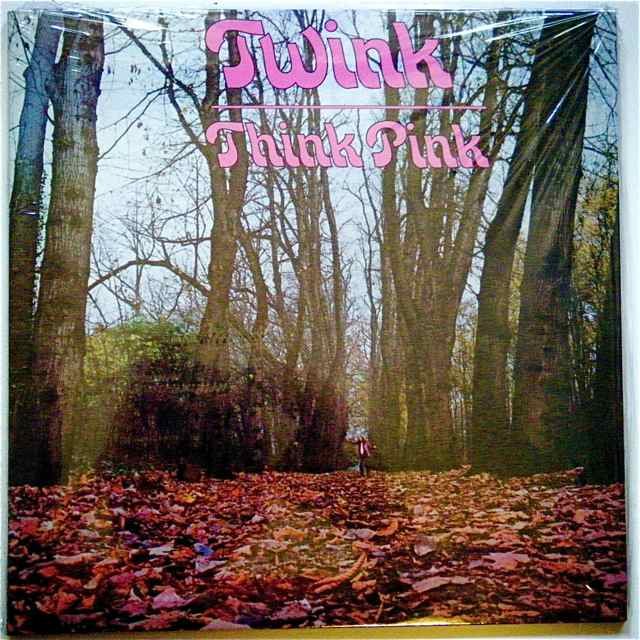
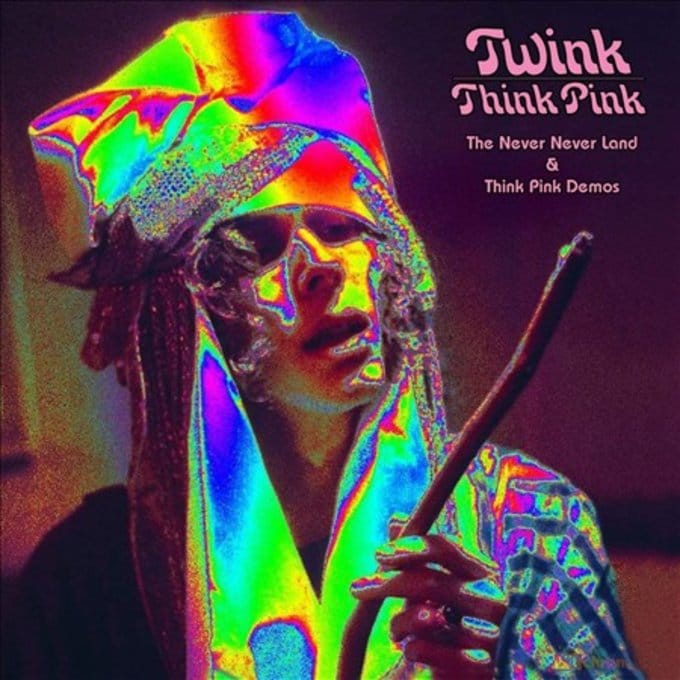
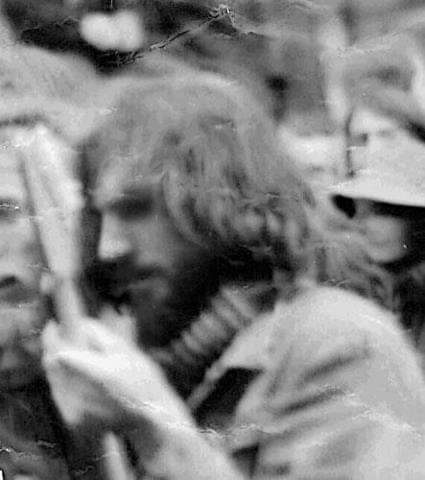
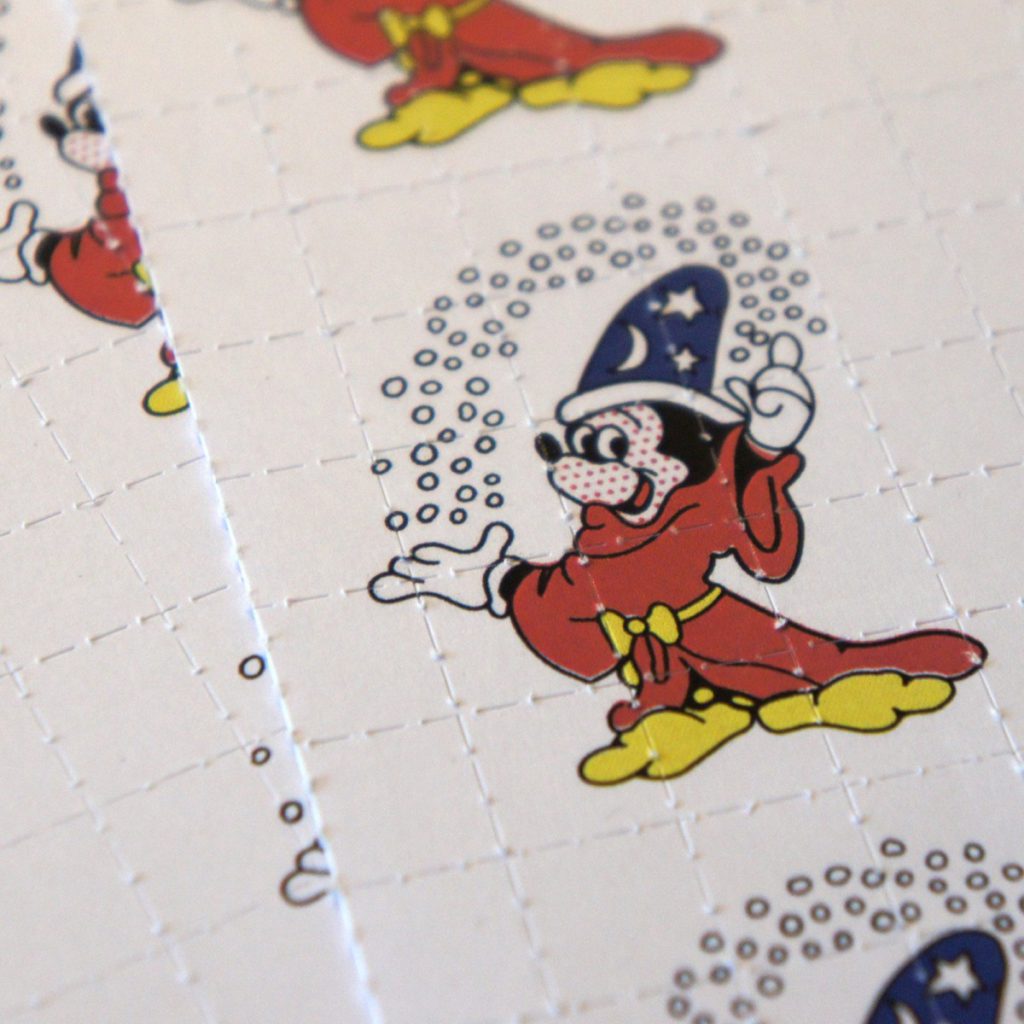
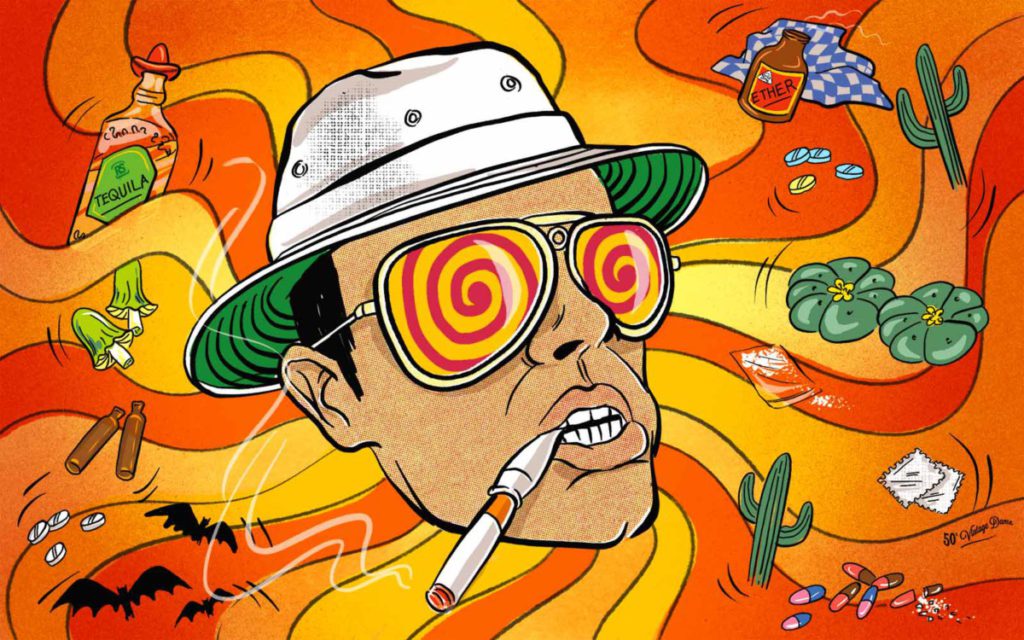
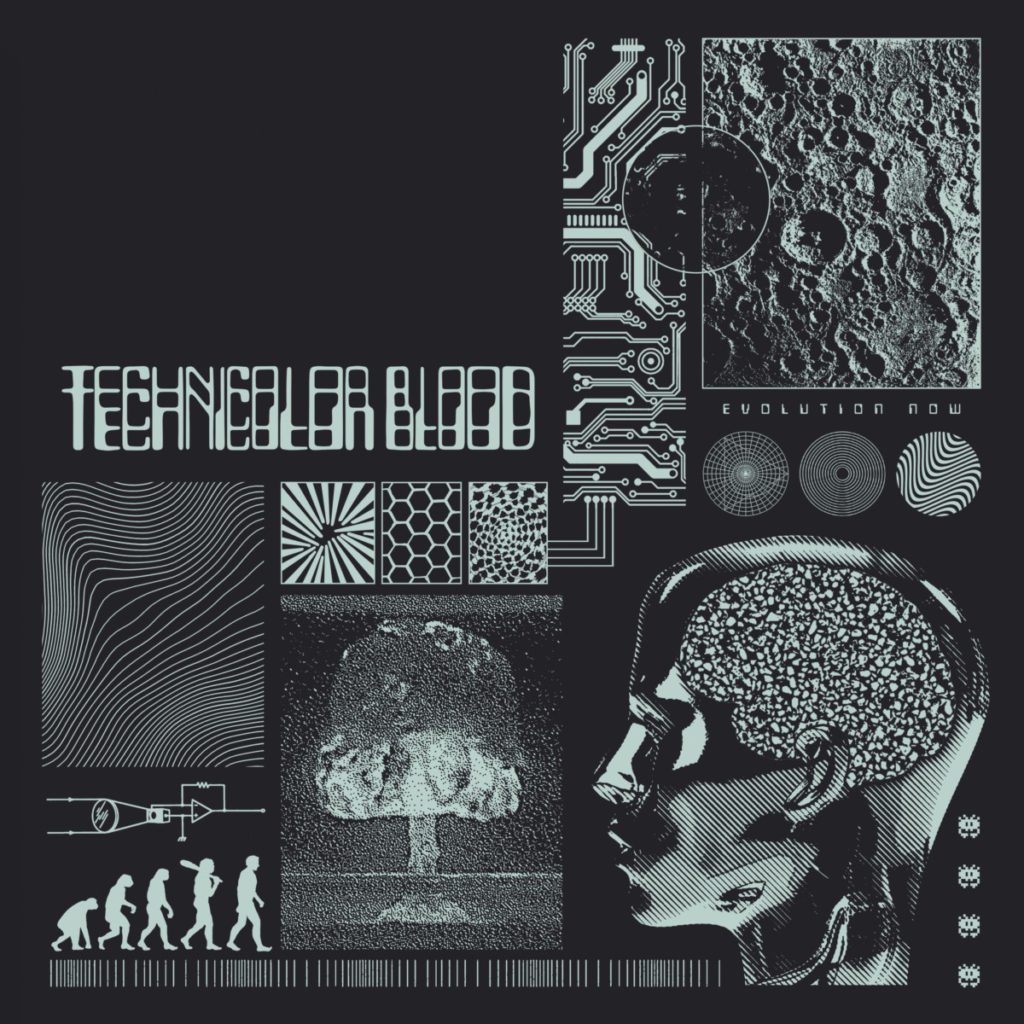
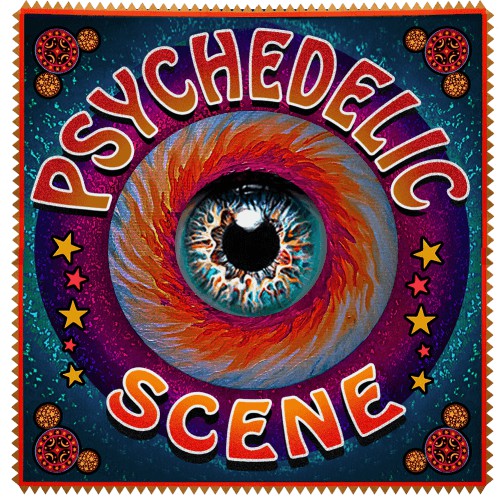

1 thought on “Interview: Twink”
Fascinating. Some of the freaks I knew back then either OD’d, or they turned into Jesus freaks, or Islam. Really interesting way to move on I guess.